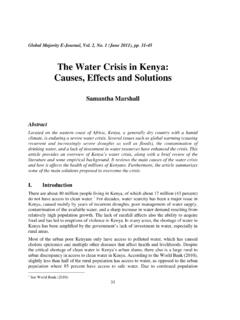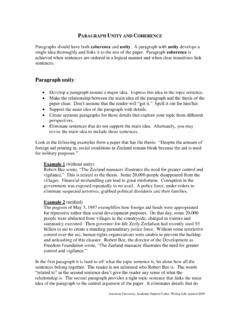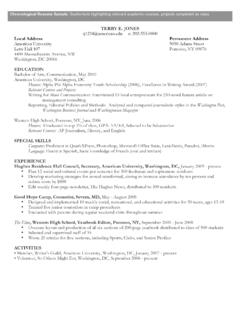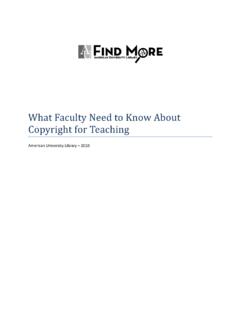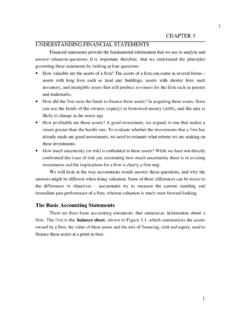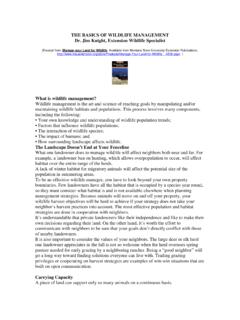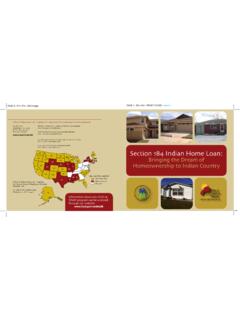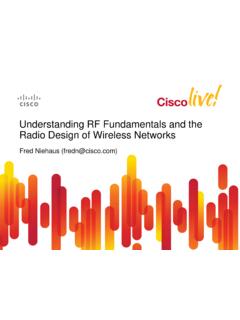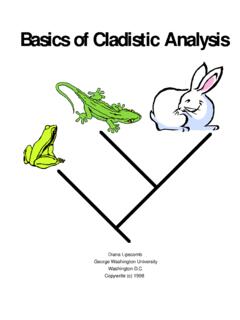Transcription of UNDERSTANDING WHITE PRIVILEGE - American University
1 UNDERSTANDING WHITE PRIVILEGE by Francis E. Kendall, , 2002 We need to be clear that there is no such thing as giving up one s PRIVILEGE to be outside the system. One is always in the system. The only question is whether one is part of the system in a way that challenges or strengthens the status quo. PRIVILEGE is not something I take and which therefore have the option of not taking. It is something that society gives me, and unless I change the institutions which give it to me, they will continue to give it, and I will continue to have it, however noble and equalitarian my intentions. Harry Brod, Work Clothes and Leisure Suits: The Class Basis and Bias of the Men s Movement, in Men s Lives, ed. Michael S. Kimmel and Michael Messner (New York: Macmillan, 1989), 280. WHAT IS WHITE PRIVILEGE ? PRIVILEGE , particularly WHITE or male PRIVILEGE , is hard to see for those of us who were born with access to power and resources.
2 It is very visible for those to whom PRIVILEGE was not granted. Furthermore, the subject is extremely difficult to talk about because many WHITE people don t feel powerful or as if they have privileges others do not. It is sort of like asking fish to notice water or birds to discuss air. For those who have privileges based on race or gender or class or physical ability or sexual orientation, or age, it just is- it s normal. The Random House Dictionary (1993) defines PRIVILEGE as a right, immunity, or benefit enjoyed only by a person beyond the advantages of most. In her article, WHITE PRIVILEGE and Male PRIVILEGE , Peggy McIntosh (1995) reminds us that those of us who are WHITE usually believe that privileges are conditions of daily [that are] universally available to everybody. Further, she says that what we are really talking about is unearned power conferred systematically (pp.)
3 82-83) For those of us who are WHITE , one of our privileges is that we see ourselves as individuals, just people, part of the human race. Most of us are clear, however, that people whose skin is not WHITE are members of a race. The surprising thing for us is that, even though we don t see ourselves as part of a radical group, people of color generally do see us that way. So given that we want to work to create a better world in which all of us can live, what can we do? The first step, of course, is to become clear about the basics of WHITE PRIVILEGE , what it is and how it works. The second step is to explore ways in which we can work against the racism of which WHITE PRIVILEGE is a cornerstone. WHITE PRIVILEGE is an institutional (rather than personal) set of benefits granted to those of us who, by race, resemble the people who dominate the powerful positions in our institutions.
4 One of the primary privileges is that of having greater access to power and resources than people of color do; in other words, purely on the basis of our skin color doors are open to us that are not open to other people. For example, given the exact financial history, WHITE people in the United States are two to ten times more likely to get a housing loan than people of color access to resources. Those of us who are WHITE can count on the fact that a nation s history books will our experience of history. American Indian parents, on the other hand, know that their children will not learn in school about the contributions of their people. All of us who are WHITE , by race, have WHITE privileges , although the extent to which we have them varies depending on our gender, sexual orientation, socioeconomic status, age, physical ability, size and weight, and so on.
5 For example, looking at race and gender, we find that WHITE men have greater access to power and resources than WHITE women do. The statistics from the 1995 Glass Ceiling Commission show that, while WHITE men constitute about 43% of the work force, they hold 95% of senior management positions in American industry. Looking purely at WHITE PRIVILEGE , WHITE women hold about 40% of the middle management positions, while Black women hold 5% and Black men hold 4%. Unless we believe that WHITE women or African American men and women are inherently less capable, we have to acknowledge that our systems are treating us unequally. WHITE PRIVILEGE has nothing to do with whether or not we are good people. We who are WHITE can be absolute jerks and still have WHITE privileges ; people of color can be the most wonderful individuals in the world and not have them.
6 privileges are bestowed on us by the institutions with which we interact solely because of our race, not because we are deserving as individuals. While each of us is always a member of a race or races, we are sometimes granted opportunities because we, as individuals, deserve them; often we are granted them because we, as individuals, belong to one or more of the favored groups in our society. At some colleges and universities, for example, sons and daughters of alumnae and alumni might have lower grades and test scores than other applicants; they are accepted, however, because their parents graduated from the institutions. That is a PRIVILEGE that the sons and daughters did nothing to earn; they were put ahead of other possible applicants who may have had higher test scores and grades because of where their parents had gone to school.
7 THE PURPOSEFUL CONSTRUCTION OF WHITE PRIVILEGE : A BRIEF HISTORY Often it is not our intent, as individual WHITE people, to make use of the unearned benefits we have received on the basis of our skin color. Most of us go through our days unaware that we are WHITE or that it matters. On the other hand, the creation of a system in which race plays a central part one that codifies the superiority of the WHITE race over all others has been in no way accidental or haphazard. Throughout American history WHITE power-holders, acting on behalf of our entire race, have made decisions that have affected WHITE people as a group very differently than groups of color. History is filled with examples of the purposeful construction of a systemic structure that grants privileges to WHITE people and withholds them from others.
8 The writing of the Constitution which, in ten articles, very intentionally confirmed the holding of Black people as slaves, as property. WHITE people s believing that our destiny was to own the land on which we all currently live, even though that required forcibly removing the native people who had lived here for centuries. Our breaking apart of Black families during slavery, sending mothers one place, fathers another, and babies and children yet another. Choosing to withhold from African Americans the ability to read so that they could not reproduce any of their culture or function well enough in our literate society to change their status. The removing of American Indian children from their homes, taking them as far as possible from anything they knew, and 3 punishing them if they tried to speak in their own languages.
9 The passing of laws that were created to maintain the legal separation and inequality of whites and African Americans (Plessy v. Ferguson) The making of politically expedient decisions by many (if not most) WHITE suffragists to align themselves with WHITE Southern men, reassuring them that by giving the vote to women (read WHITE women since at that time about 90% of the Black women lived in the South and were not by law, able to hold property and thus vote) the continuation of WHITE supremacy was insured. The manipulation of immigration laws so that people of color, particularly Chinese and Mexican as well as European Jews, were less free to immigrate to the than Western and Eastern Europeans. The removing of American citizens of Japanese ancestry from their homes and taking their land and their businesses as our own during World War II.
10 The using of affirmative action to promote opportunities for WHITE women rather than for people of color. It is important to know and remember this side of American history, even though it makes us extremely uncomfortable. For me, the confusion and pain of this knowledge is somewhat eased by reminding myself that this system is not based on each individual WHITE person s intention to harm but on our racial group s determination to preserve what we believe is rightly ours. This distinction is, on one hand, important, and, on the other hand, not important at all because, regardless of personal intent, the impact is the same. Here are a couple of examples. For many years, it was illegal in Texas for Spanish- speaking children to speak Spanish at school. This meant that every individual teacher and principal was required by law to send any child home for speaking his or her own language whether the teachers and/ or principals believed in the law or not.
